"Here I am at surely the most eclectic of all the London branches of Bowie Anonymous. All the nicest possible freaks are here." (Tilda Swinton, at the opening of the David Bowie Is exhibition at London’s V&A Museum)
David Bowie departed this planetary tragedy with fond regards just eight short years ago, leaving behind, among other things, a funny, morbid farewell video in which he backs the hell up—back into the closet and closes the door. As our first loudly queer (and not all that queer, even) rock star, the man who sold the ambiguous clothes to the world—the most intellectual of all rockers, who was superficially viewed early on as superficial (because of the clothes); who, while all the old dudes were licking their post-"The Revolution" wounds, sparkled (at least across Great Britain) with the advent of the alien Droogie of Love, Ziggy Stardust...Ziggy Stardust who pressed a mutational laser to some of our heads; for those ready to take the implicit androgyny of stony rollers in their foppish finery one step further, with a slight nod back to the American freak called Alice (ol' black eyes was much more feminine in the earlier incarnation) and a power bump from newly Britain-minted teen idol Marc Bolan (T. Rex).
Bowie's emergence into a new level of rock godhood (again, mostly in Great Britain) on the wings of Ziggy Stardust and the Spiders from Mars ran on two PR plot points. The first was to come out as gay or bi or whatever the hell sexual omnivorousness could be tossed into the cauldron of early 1970s post-utopian confusion. The other was to mask Ziggy/Bowie as the anti-hippie. "I want to strangle them with their hippie beads," he told a rock journalist. (The violence of the statement was unusual at the time, but the thought wasn't particularly original. By 1972, almost everybody was exasperated and exhausted with the hippie cliché, including most "hippies.") But Bowie's relationship to counterculture writ both small (i.e., the "'60s movement") and writ large (i.e., the broader definition of counterculture as antiauthoritarian bohemianism gathering mass influence) was more complex than a strangling sound bite would express.
Tripping Balls to Early Bowie
I take you back to the early Bowie days before Ziggy Stardust. I am a young man just past the age of consent (eighteen), and I'm coming down from a pretty strong acid trip. One friend had sort of awkwardly come out as wondering if he is gay and the devil. I lie down in bed and open the book I've been reading. The title and specifics of this book are lost in the frustrating fog of my memory, but it contains manifestos and manifesto-style ultra-radical writings. Some early historical pieces; Tristan Tzara introducing dada; André Breton tightening it up with surrealism; and the current ultra-leftists then very much appearing to be dynamically influencing the youths, particularly the college kids; the Yippies, White Panthers, Black Panthers, Weather Underground, Up Against The Wall Motherfuckers—your basic underground shit of the time that probably feels opaque to most of my readers now but was sort of part of the ambiance of youth culture in the immediate aftermath of zeitgeist moments like the shootings of white college kids at Kent State Ohio and Richard Nixon's expansion of the Vietnam war into Cambodia and Laos.
So there I am... a young man tripping balls; vibing with these peak moments of 1969–70 freak culture as text in a book, the letters slightly trembling with added acid poignancy.
I have the radio on. And the DJ comes on and makes a little speech. He's telling us about this guy who is big in England; this guy is going to be important, he explains. Now, this is the same DJ that, back in the days of AM radio, explicitly called my attention to "Like a Rolling Stone" and who then, a couple of years later, issued an enthusiastic warning before playing "I Am the Walrus." So you will understand that my antennae went up. My DJ dude had my attention. And he played "Memory of a Free Festival" and followed it up with "Cygnet Committee."
I'm going to pause here to let your jaded, faded fascism-fearing 2025 brain try to imagine the impact of these two songs on my (probably delusional) ultra-revolutionist teenage tripping brain. Go read the lyrics. Listen to the songs and then return.
This is how I came to know David Bowie. Not as the meta-transgressive smarty pants multilevel, well-marketed rock and pop culture chameleon genius who mutated far beyond the musings of early '70s counterculture, but as a rather didactic chronicler of the state of the counterculture at the end of the 1960s and start of the '70s. The only rock stars being this explicit about the state of what Abbie Hoffman called the "Woodstock Nation" were John Lennon, Paul Kantner, and Grace Slick of Jefferson Airplane. So, while most fans and pop culture intellectuals don't view the approximate five-decade-long Bowie oeuvre through the scrim of reflecting back on the counterculture circa 1967–'71, I do... sort of.
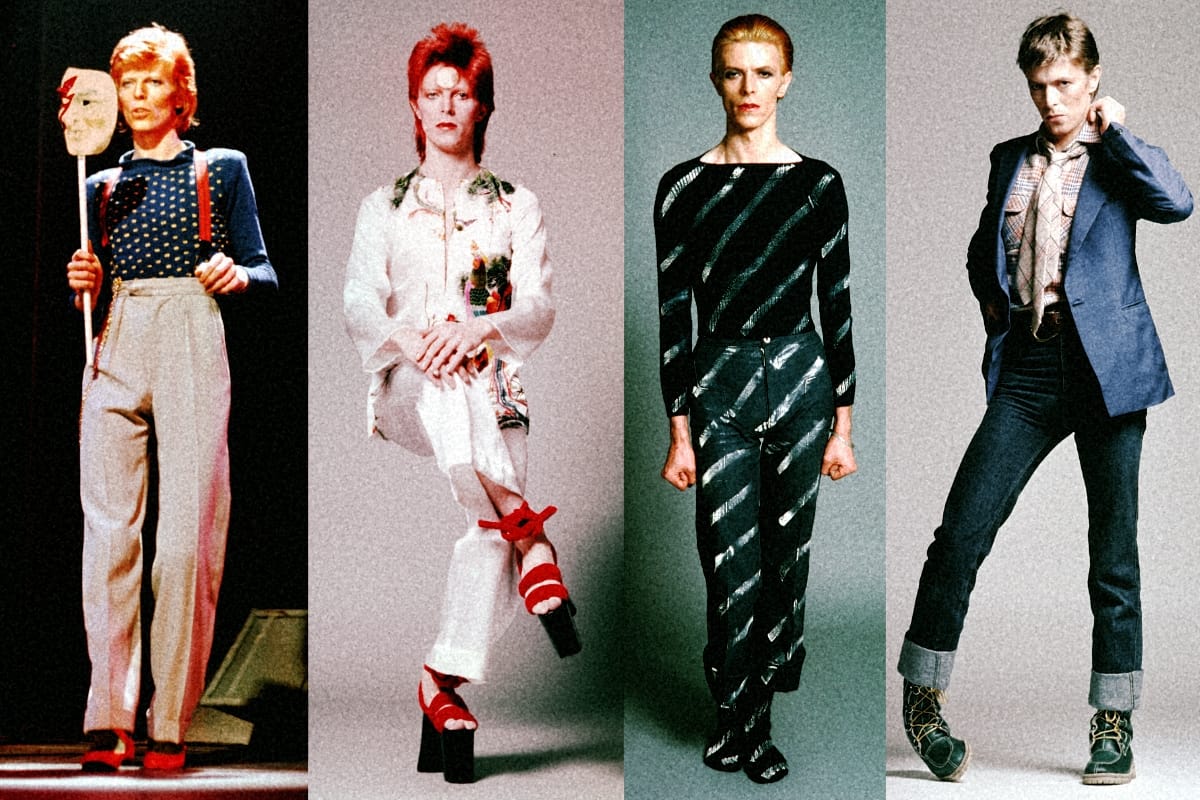
Mocking Leary?
It doesn't help calm my perspective that Timothy Leary, my friend and a person who, for life, was associated with the word "hippie" (which he hated) and with counterculture (which he embraced), thought Bowie directed critical lyrical barbs directly at him; including in "Ashes to Ashes." The evidence is pretty good that the post-70s Timothy is present in the song. There's space travel and tripping as metaphors for one another, and there's cryonics ("want an axe to break the ice/want to come down right now"), and there's love with "sordid details following" (Joanna Harcourt and the FBI affair as understood by the broader culture at the time). I will resist the urge to do a complete Leary (or, indeed, leery) reading of Bowie's possible black mirrored reflections on my favorite "space oddity/optimist," but "Hallo Spaceboy" (1995) might be worth a look as the last of the Space Oddity trilogy. "This chaos is killing me," Bowie repeats. Leary's book around that time was Chaos and Cyberculture, and he was dying of cancer as Bowie was with Brian Eno recording the album.
Zeitgeist Chameleon: A Very Limited Counterculture Discography
Bowie was engaged in the zeitgeist always, so to the extent that some aspect of counterculture, bohemia, the aftermath of the new left, psychedelic drugs, and music were always in the mix, most of his work can be thought of as touching on some aspect of that signification. And if you rope in the counterculturalness of avant-garde art tropes, the list would expand until bursting. But this is a brief discography of some of the more obvious moments in which the thin-wired dude lyrically referenced or commented on counterculture and/or psychedelia.
From the 1969 album David Bowie (Sometimes known as Space Oddity)
Bowie's most hippie-ish years were at the turn of the decade as the 1960s gave way to the 1970s. He was hanging out at the "Beckenham Arts Lab" in the London Borough of Bromley and helping to organize a music festival. It was during this period that he composed the songs that became Space Oddity.
In "Unwashed and Somewhat Slightly Dazed," the young Bowie paints himself as a ragamuffin freak ("a phallus in pigtails") whose presence would not be appreciated by the parents of a girl he likes.
Less personal and more in the vein of social commentary, "Cygnet Committee" offers a sign of dystopian narratives to come, as Bowie envisions 1960s revolutionaries turning bloodyminded. Taking on the voice of a freak elder, Bowie's character declares:
I opened doors That would have blocked their way
I braved their cause to guide, For little pay
I ravaged at my finance just for those
Those whose claims were steeped in peace, tranquility
Those who said a new world, new ways ever free.
The voice then becomes more strident, declaring:
The silent guns of love
Will blast the sky
We broke the ruptured structure built of age
Our weapons were the tongues of crying rage
Where money stood
We planted seeds of rebirth
And stabbed the backs of fathers
Sons of dirt
Infiltrated business cesspools
Hating through our sleeves
Yea, and we slit the Catholic throat...
This is followed by a recitation of several "hippie"/new left movement slogans: "Wish You Could Hear"/"Love Is All We Need"/"Kick Out The Jams"
Bowie briefly nods towards Orwell's 1984 totalitarian vision (which will become an obsession by 1974's Diamond Dogs album) before the vision gets even more violent:
As a love machine lumbers through desolation rows
Plowing down man, woman, listening to its command
But not hearing anymore
Just the shrieks from the old rich.
And the song finally resolves into a desperate plea:
And I want to believe
In the madness that calls 'Now'
And I want to believe
That a light's shining through somehow
It's followed by both "we want to believe," "we want to live," and "I want to live," which fades slowly into the distance.
In a 1969 context, "I want to live" needs to be understood not merely as a desire to survive but as a desire to live intensely, wildly, spontaneously. The remainder of Bowie's trickster career will largely have fun at the expense of such privileged excesses of utopian hope and idealism.
Bowie or his producer or record company chose to put the very utopian "Memory of a Free Festival" after "Cygnet Committee." Here is Bowie's grooviest, most pro-psychedelic moment:
Oh, to capture just one drop of all the ecstasy that swept that afternoon
To paint that love upon a white balloon
... satori must be something just the same.
And then:
Someone passed some bliss among the crowd
And we walked back to the road unchained.
Even Donovan might have been a little embarrassed.
From Hunky Dory (1971)
"Song for Bob Dylan" is absolutely one of Bowie's strangest songs in that it echoes the complaints heard in the left-leaning underground culture that the troubadour had abandoned—or refused to sign up for—the revolution.
I mean, can you imagine how much Bob must have hated this?!
Now hear this, Robert Zimmerman
Though I don't suppose we'll meet
Ask your good friend Dylan
If he'd gaze a while down the old street Tell him we've lost his poems
So we're writing on the walls
Give us back our unity
Give us back our family
You're every nation's refugee
Don't leave us with their sanity
Hey man, leave me alone!
"Bewlay Brothers" is a more complicated psychedelic song that mostly resolves around a relationship of gay outsiders who "were so Turned On/You thought we were fakirs" and who were "so Turned On/In the Mind-Warp Pavilion."
From The Rise and Fall of Ziggy Stardust and the Spiders from Mars (1972)
With Ziggy, Bowie separates himself decidedly from hippieism as it's commonly understood. In "Star," Ziggy isn't going to "stay home to starve" like one of his characters, nor is he going to mourn Bevin, who "tried to change the nation," or Sonny, who "wants to turn the world, he can tell you that he tried." No. Ziggy is leaving it all behind because he "can play the wild mutation as a rock and roll star." Well, it's definitely a good strategy for the freak with enough talent.
And then there's "Ziggy Stardust." What the hell does anyone who wasn't present in 1971 make of an awkward line like "just the beer light to guide us?" I'll try to unpack. Drugs, particularly weed, and psychedelics, had been viewed as sources of "the light" in counterculture for about five years, sending some off traipsing around the world looking for satori or plentiful hashish or both. Now it's 1971, and you're stuck in gloomy old England, and you can't score any good wisdom drugs. Or, for an alternative interpretation... things are too depressing, and you'd rather drink than imbibe anything that might increase awareness or sensitivity. Just the beer light...
From Aladdin Sane (1973)
The song "Panic in Detroit" is about a character who "looked a lot like Che Guevara" and appears to be about to commit an act of terrorism or who has committed an act of terrorism. The voice telling the story is inspired to commit some surreal vandalism, as in "screamed and ran to smash my favorite slot machine/And jumped the silent cars that slept at traffic lights." By now, Bowie is cutting up and fragmenting the medium messages and avoiding semblances of the didactic. The song was inspired by Iggy Pop, who regaled Bowie with tales of the days of Detroit counterculture heavyweight John Sinclair and his revolutionary White Panther Party ("acid-driven maniacs of the universe" dedicated to "rock and roll, dope and fucking in the streets"). These are the ultra-radical lunatics David worried about in "Cygnet Committee," but now he is clearly enjoying these tales told by Iggy about the White Panther times.
From Young Americans (1975)
John Lennon came around to help Bowie record two songs, and no doubt join him in consuming mountains of cocaine for the Young Americans album. Aside from earning himself a (somewhat gratuitous) songwriting credit for Bowie's first big US hit "Fame," Lennon joined him in recording the Lennon/Beatles song "Across the Universe." (I'll assume this is already lyrically familiar). So what happens when Bowie and Lennon assault this cosmic meditation on the eternal now, probably composed under the giggly gaze of the Maharishi? It becomes desperate and paranoid. "Nothing's gonna change my world!" I can't decide if it's reactionary and defiant or desperate and horrified... and neither can they.
From Lodger (1979)
"African Night Flight" is the sort of twisted song one would expect from Bowie by the end of the '70s after enjoying many nights with Eno and Iggy in West Berlin staring at the wall. The William Burroughs cut-up method overtakes most of the lyrics, but through the haze, one can decipher something possibly like a psychedelic Illuminati vision:
Seemed like another day I could fly into the eye of god on high
His burning eye will see me through
But the irony (or perhaps the deeper analyses) here is that the "I" in the song is not viewed as a benign seeker after illumination but rather has the feel of a colonial tourist:
Bent on a windfall rent a sony
Wonder how the dollar went down
Gotta get a word to Elizabeth's father
Hey ho, he wished me well
Throw in some evolutionary gibberish:
Over the bushland over the trees
Wise like Orangutan that was me
I always heard it as "Rise like orangutan." I want to believe.
From Scary Monsters (and Super Creeps) (1980)
While there are other lyrical moments later that probably deserve unpacking (and I'll briefly commend unto you the suicidal antiwar song from The Next Day [2013] titled "I'd Rather Be High"), I'm going to close out this attempt by commending the counterculturalness of the anxious rocker "Scream Like a Baby." This one depicts miserable, desperate, anti-system weirdoes headed to psychiatric institutions or suicide. "We jumped into the furnace singing old songs we loved."
Other lines include, "Well, they came down hard on the faggots/And they came down hard on the street." Here, Bowie's character sings, post-institutionalization, the words of a broken mind... "Now I'm learning to be a part of socie... soc... soci... society," giving expression to the sorry end point of those freaks that just couldn't fit and that the system chewed up and spit out.
Perhaps I shouldn't end on such a sour note. But it’s 2025 and there are scarier monsters and super creeps making the scene both where I am in the US and all around the planet, so I will indeed leave it there.
Be sure to follow R.U. Sirius on Bluesky and Instagram and check out what's happening with Mondo 2000 at mondo2000.com.
Check out more like this:
 The TonearmArina Korenyu
The TonearmArina Korenyu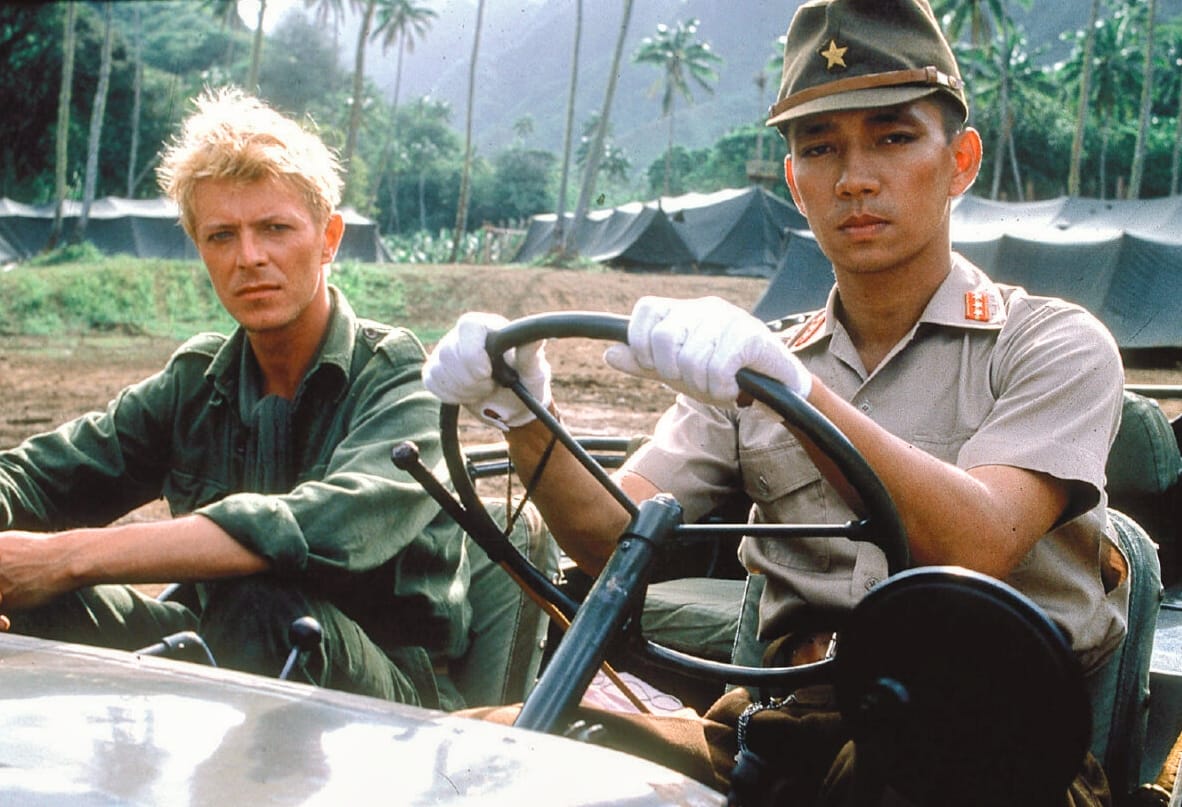
 The TonearmLawrence Peryer
The TonearmLawrence Peryer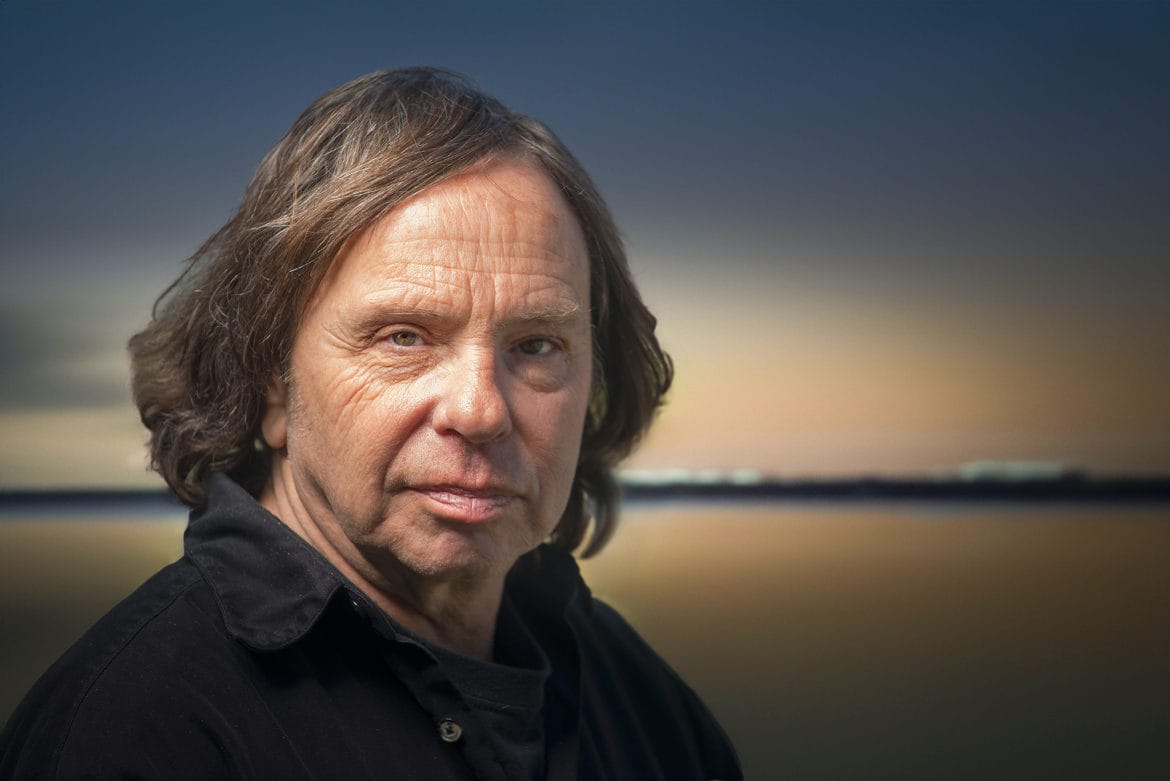


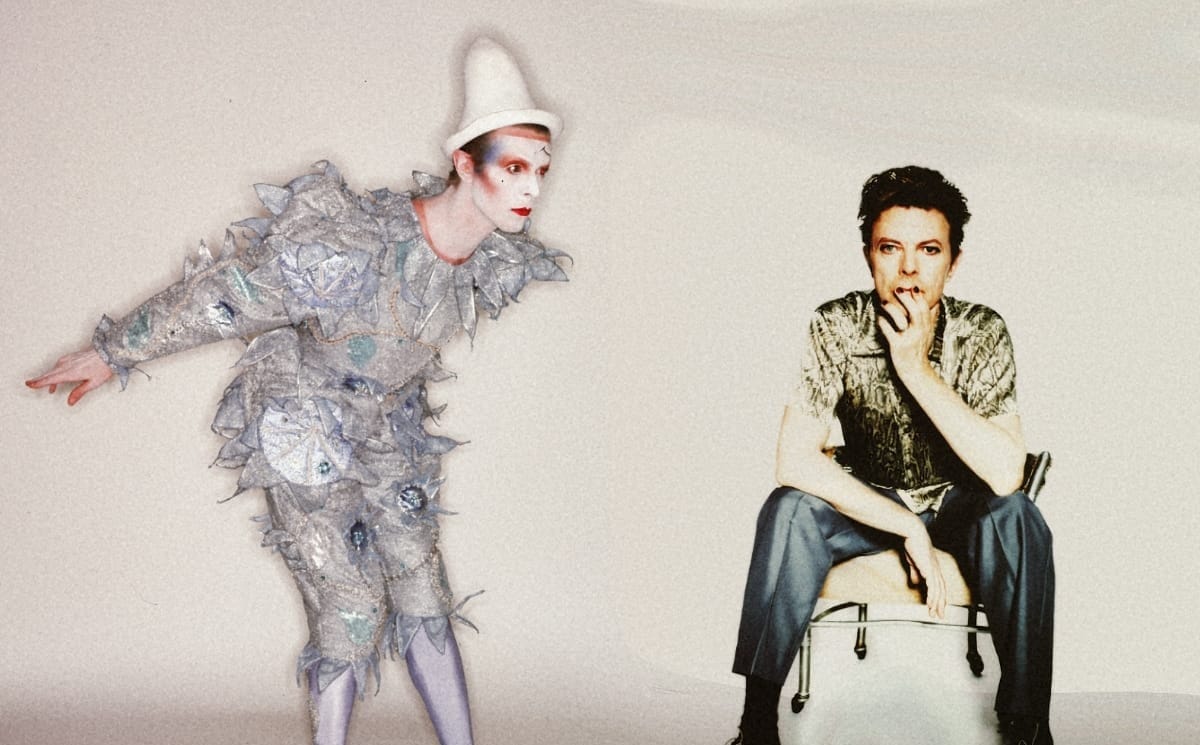


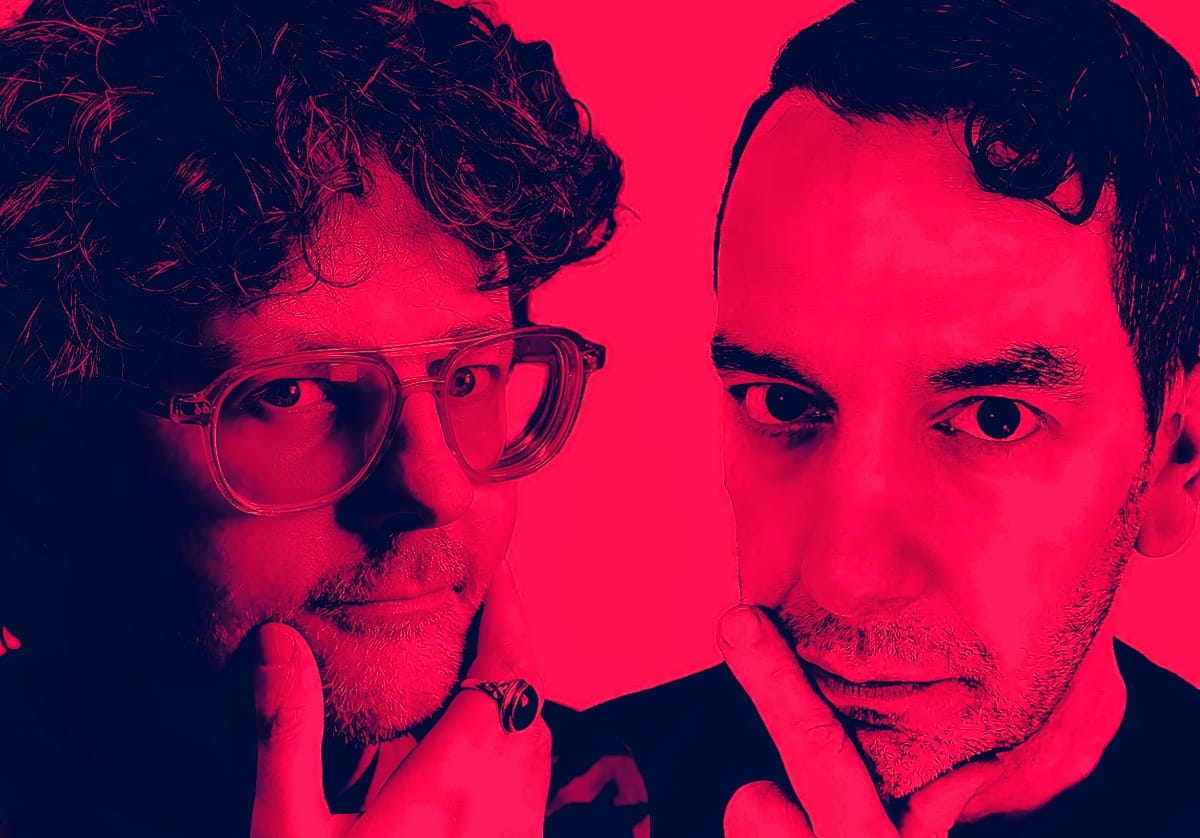
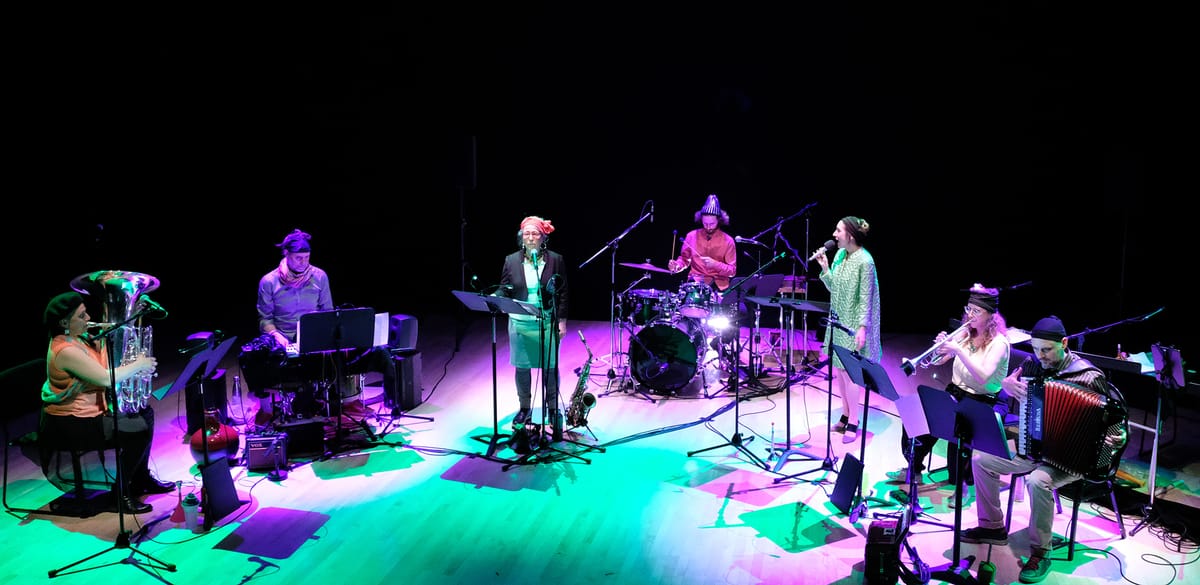
Comments